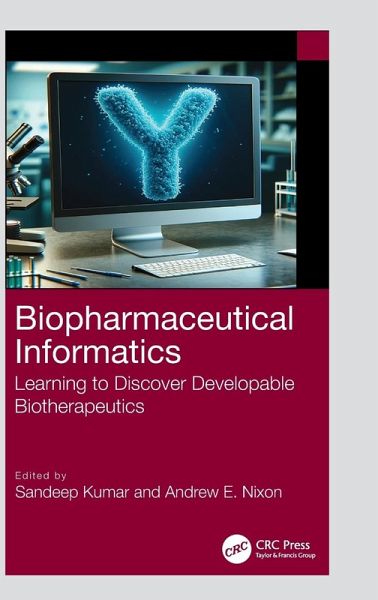
Biopharmaceutical Informatics
Learning to Discover Developable Biotherapeutics
Herausgeber: Kumar, Sandeep; Nixon, Andrew
Versandkostenfrei!
Versandfertig in 1-2 Wochen
177,99 €
inkl. MwSt.
Weitere Ausgaben:

PAYBACK Punkte
89 °P sammeln!
This book describes ways to invent and commercialize biomedicines in a more time and cost-efficient manner. Failure to translate a discovery into a marketed drug denies us an opportunity to improve the lives of patients who do not have access to effective therapies. Here, the authors provide a greater understanding of biopharmaceutical informatics.














